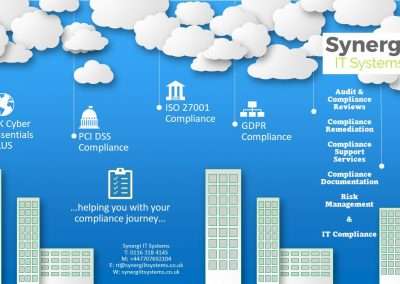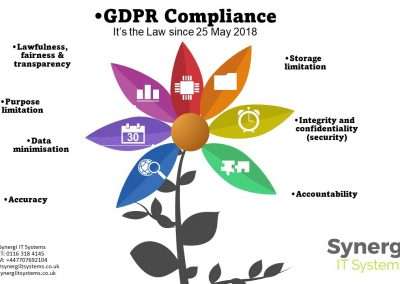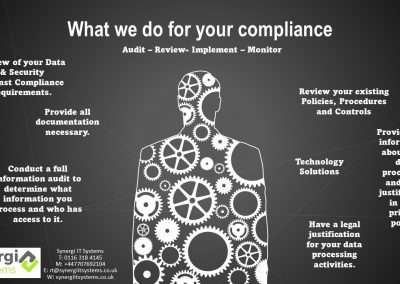Compliance Services
NHS Data Security & Protection (DSP)
What Is It?
UK Data Protection Toolkit (UK GDPR)
The UK Data Protection Toolkit (UK GDPR) is a set of guidelines developed by the UK Information Commissioner’s Office (ICO) to help organizations comply with the UK General Data Protection Regulation (UK GDPR).
Compliance with the UK GDPR is essential for organizations that process personal data in the UK, and failure to comply can result in significant fines and reputational damage.
The UK GDPR is the UK’s adaptation of the EU’s General Data Protection Regulation (GDPR) and became effective on January 1, 2021. Like the GDPR, the UK GDPR aims to protect the privacy and personal data of individuals and requires organizations to obtain explicit consent before collecting and using personal data.
The UK GDPR also gives individuals the right to access, modify, and delete their personal data and requires organizations to report data breaches to authorities within 72 hours of becoming aware of the breach.
The UK Data Protection Toolkit provides guidance and resources to help organizations understand their obligations under the UK GDPR and implement best practices for data privacy and security.
The toolkit includes a self-assessment tool, guidance documents, and templates to help organizations comply with the UK GDPR’s requirements.
ISO/IEC 27001 – Information Security Management System
ISO/IEC 27001 is an international standard that specifies requirements for establishing, implementing, maintaining, and continually improving an Information Security Management System (ISMS). An ISMS is a systematic approach to managing sensitive company information, such as financial data, intellectual property, and customer information, in order to protect its confidentiality, integrity, and availability.
The ISO/IEC 27001 standard provides a framework for identifying, analysing, and mitigating security risks, and includes guidelines for implementing security controls to protect information assets. The standard emphasizes a risk-based approach to security management, which involves assessing risks and implementing appropriate security controls based on the level of risk. ISO/IEC 27001 also requires regular monitoring and review of the ISMS to ensure its effectiveness and identify opportunities for improvement.
Compliance with ISO/IEC 27001 can help organizations demonstrate their commitment to information security and provide assurance to customers and stakeholders that their sensitive information is being managed and protected effectively. The certification process involves a third-party audit, which verifies that the organization’s ISMS complies with the standard’s requirements.
ISO 22301 – Business Continuity Management System
ISO 22301 is an international standard that specifies requirements for establishing, implementing, maintaining, and continually improving a Business Continuity Management System (BCMS).
A BCMS is a systematic approach to identifying and managing risks that could disrupt critical business operations and processes, such as natural disasters, cyber attacks, or equipment failures.
The ISO 22301 standard provides a framework for developing a business continuity strategy, including risk assessment, business impact analysis, and development of continuity plans and procedures.
The standard emphasizes a proactive approach to business continuity management, which involves preparing for potential disruptions before they occur.
ISO 22301 also requires regular testing and evaluation of the BCMS to ensure its effectiveness and identify opportunities for improvement. Compliance with ISO 22301 can help organizations minimize the impact of disruptions on their operations, protect their reputation and brand, and ensure that they can continue to provide essential products and services to their customers.
The certification process involves a third-party audit, which verifies that the organization’s BCMS complies with the standard’s requirements.



